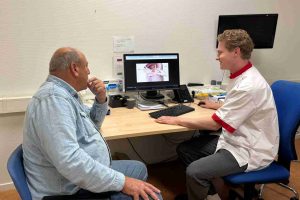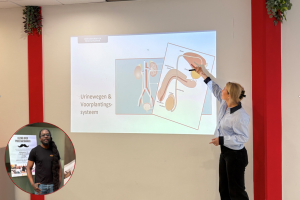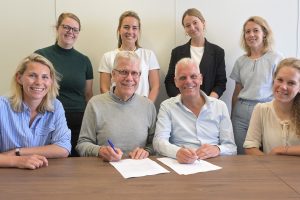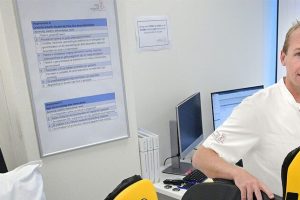Four research teams from the NKI Center for Early Diagnostics have been awarded funding for new projects to improve the early detection of cancer. These initiatives are made possible by financial support from KWF Dutch Cancer Society and donations from the DNA Gala. The studies are expected to boost efforts in early cancer detection significantly.
New Research Projects
The following projects can get started:
Smart biopsy needle
The research group led by surgeon Theo Ruers is working on the development of a “smart” biopsy needle. This advanced needle incorporates complex technology that can immediately determine whether there are malignant cells present in the tissue after sampling. This would provide patients with instant results, reducing anxiety and minimizing the need for additional biopsies.
Hyperspectral imaging
Senior researcher Behdad Dasht Bozorg is working on an innovative device for the early diagnostics of skin cancer. This device combines artificial intelligence with hyperspectral imaging. The specialized technique enables the detection of skin cancer without the need for unnecessary tissue sampling. The tool is expected to become suitable for home use via mobile phones.
Risk model with point-of-care ultrasound
Urologist Pim van Leeuwen is leading a study to improve risk assessment for prostate cancer using a Point-of-Care Ultrasound device. This specialized ultrasound tool provides imaging of the prostate, while collecting valuable information to assess prostate cancer risk. The goal is to implement this risk assessment method in general practice.
Early detection of colorectal cancer: FIT implementation study
Gastroenterologist Monique van Leerdam is heading the FIT implementation study. In the Netherlands, the fecal immunochemical test (FIT) is used in colorectal cancer screening, with a high cut-off threshold. England uses FIT with a lower cut-off threshold as a triage tool in general practice as well. This study will evaluate the use of FIT with a lower cut-off threshold in general practice and assess its outcomes.
The impact of early detection
The NKI Center for Early Diagnostics aims to facilitate and promote the development and implementation of new tests and methods in early diagnostics. In addition, the center focuses on better identifying individuals at higher risk for cancer, allowing for more efficient testing strategies. By advancing research into innovative diagnostic tests and targeting high-risk groups, the Center aims to make a significant impact in cancer detection.









